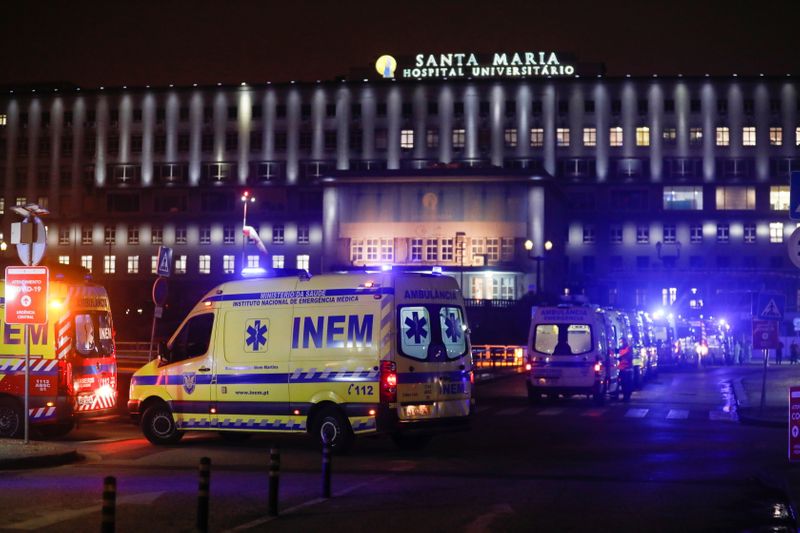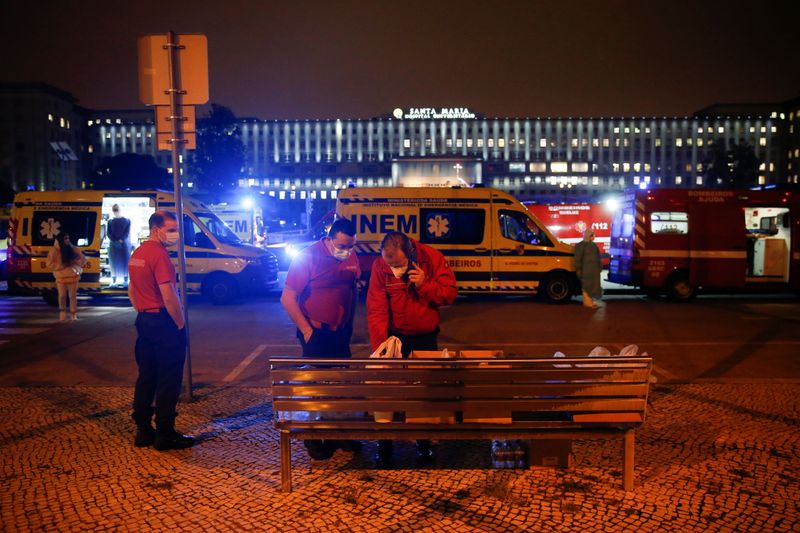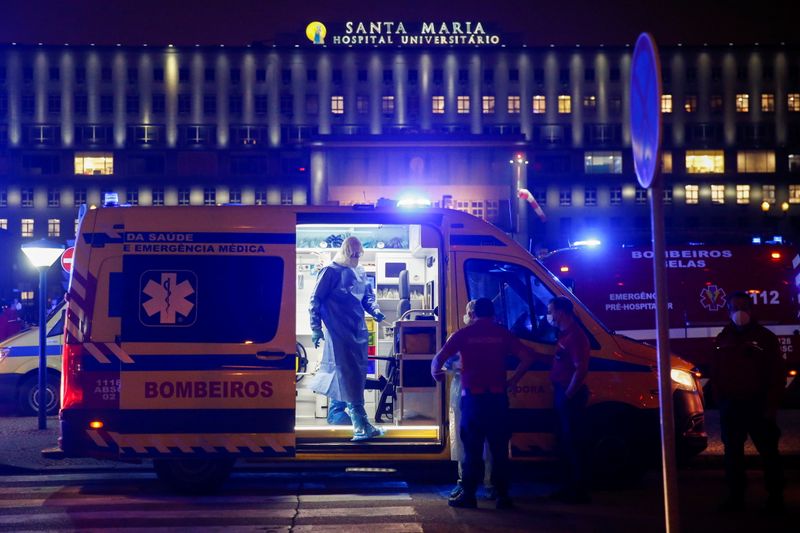LISBON (Reuters) – Hospitals in Lisbon flooded with COVID-19 patients are at risk of failing to meet soaring demand for oxygen, the head of Portugal’s doctors association said as Germany sent military medics to the country to evaluate how they can help.
Portugal, with a confirmed total of 668,951 cases and 11,305 deaths including a record 293 dead on Wednesday, is struggling to handle a record surge in infections.
Hospitals are using two-thirds of their intensive care beds for COVID-19 patients and military hospitals are converting cafeterias into wards.
More than 20 ambulances with COVID-19 patients queued outside Portugal’s largest hospital, the Santa Maria in Lisbon, on Wednesday evening as they waited for beds to become available, according to a Reuters witness.
The hospital is struggling to cope with the number of patients and a spokesman said it only has one bed left in its COVID-19 ICU and around 10 on the ward.
Portugal fared better than other European countries in the first wave of the pandemic but now has the world’s highest seven-day average of new daily cases and deaths per million inhabitants.
On Tuesday night, 53 patients were transferred from Lisbon’s Fernando Fonseca Hospital to avert a collapse of its oxygen system. Another 32 were to be transferred on Wednesday to three other hospitals, Fernando Fonseca Hospital chief nurse Rui Santos told a news conference.
German military medical experts sent to Portugal “will be exploring the situation on the ground and trying to clarify what kind of support is needed and feasible,” a Defence Ministry spokesman said on Wednesday evening, confirming a report in Germany’s Der Spiegel magazine.
The Portuguese newspaper Observador said German medical experts had visited the Fernando Fonseca Hospital and would visit other health centres.
Health Secretary Antonio Lacerda Sales said the government was looking into getting more help from European partners.
The problem at Portuguese hospitals is not a lack of oxygen, but the fact that reservoirs cannot provide it at enough pressure to so many patients at once, Order of Doctors head Miguel Guimaraes told Observador radio.
“What is happening in these hospitals, and particularly in Lisbon, is that their capacity has been largely overwhelmed… It’s what we call ‘catastrophe medicine’,” he said.
Luis Pisco, president of Lisbon’s health authority, told broadcaster RTP that hospitals were working to boost reservoir capacity and improve distribution over the next fortnight.
(Reporting by Lisbon Bureau, Thomas Seythal and Sabine Siebold in Berlin; Editing by Ingrid Melander, Mark Heinrich and David Gregorio)




























